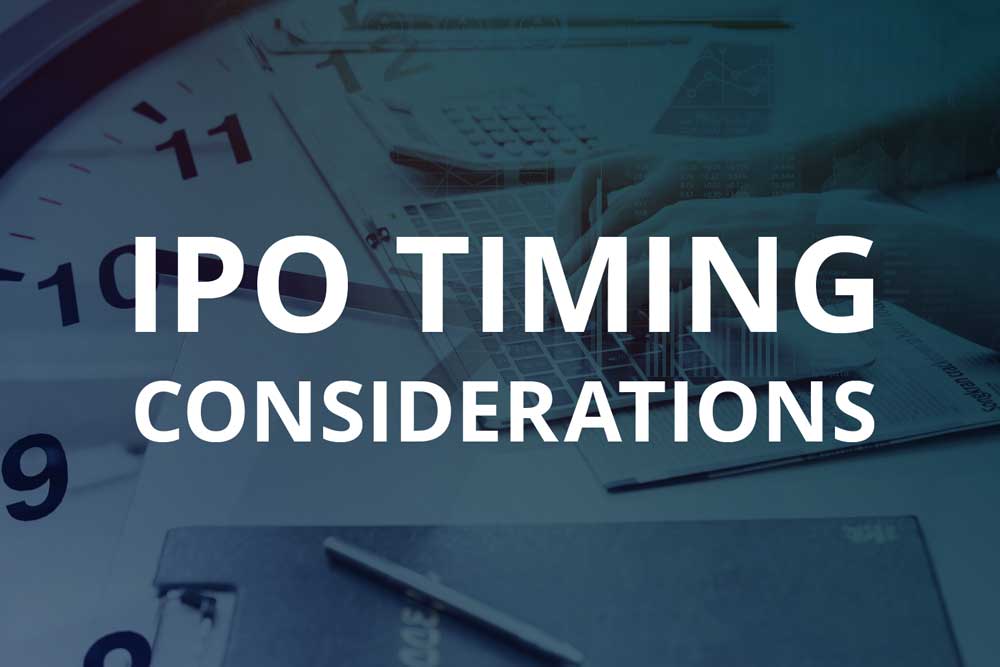The timing of an IPO can be critical for a company’s success. There are several factors a company should consider when deciding when to go public:
Market conditions: The state of the market can have a significant impact on the success of an IPO. A strong market can provide a better environment for a successful IPO, while a weak market may make it more difficult for the company to achieve its desired price.
Company performance: A company’s financial performance is a key factor in determining the timing of an IPO. A company should have a solid track record of growth and profitability before going public, as this will increase its chances of success.
Industry trends: The state of the industry in which the company operates should also be considered. A company may want to time its IPO to take advantage of positive industry trends or to avoid negative ones.
Competitive landscape: A company should also consider the competitive landscape and the presence of other companies in the same industry that may be planning to go public.
Regulatory environment: The regulatory environment is an important factor to consider when timing an IPO. A company should ensure that it has complied with all the necessary regulatory requirements before going public.
Overall, a company should carefully consider all these factors and work with its investment bankers and advisors to determine the best timing for an IPO. The company should also have a clear understanding of its goals and objectives for the IPO and ensure that its strategy aligns with these goals.







